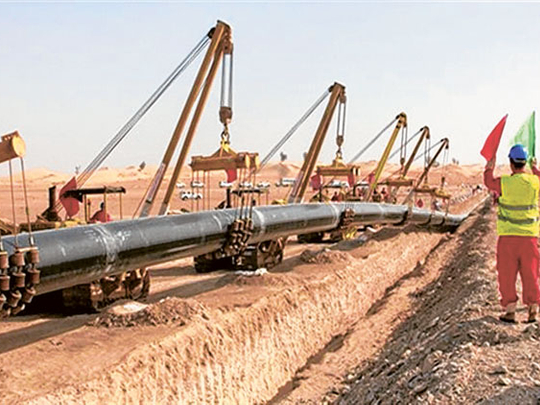
Abu Dhabi: Abu Dhabi's International Petroleum Investment Co (Ipic) paid a premium on its existing debt to raise $4.4 billion in bonds as turmoil in the Middle East drives up corporate borrowing costs.
Ipic priced €1.25 billion ($1.7 billion) of five-year notes to yield 5.032 per cent on Wednesday, 108 basis points more than existing dollar-denominated five-year bonds that mature a year earlier. The state-owned investment company may use the money for its €4 billion offer for the shares it doesn't already own in Spanish oil company Cia. Espanola de Petroleos SA, Fitch Ratings said on March 7.
"It's a strange time to go to the markets in part because of the Middle East crisis but I suppose they really had very little choice," Jim McCormick, the London-based head of fixed- income research for Europe, Middle East and Africa at Nomura Holdings Inc said in an interview in Dubai.
"What it tells you in terms of the underlying conditions is simply that it is going to be a more difficult time for Middle East issuers until we have some clarification on what's happening and that could take a very long time."
Middle East unrest that ousted presidents in Tunisia and Egypt spread to the region's oil-producers including Oman, Bahrain and Libya where a rebellion is raging against the country's leader Muammar Gaddafi.
The yields on debt issued by companies in the six-member Gulf Cooperation Council have receded this week after soaring to a seven-month high of 5.97 per cent on February 28, the HSBC/Nasdaq Dubai GCC Conventional Corporate US Dollar Bond Index shows.
Ipic also sold €1.25 billion of 10-year securities at a yield of 6.047 per cent, 53 basis points higher than its existing 10-year dollar bond.
The yield on the company's existing five-year 3.125 per cent bonds in dollars due in November 2015 rose 6 basis points to 3.95 per cent as of 9.35am in London, according to Bloomberg composite prices.
The yield on its dollar bonds maturing in 2020 rose 5 basis points to 5.63 per cent. The yield on Abu Dhabi government's bond maturing in 2019 fell 1 basis point to 4.8 per cent.
"They were a bit generous in terms of spread, versus the Abu Dhabi government," said Abdul Qader Hussain, chief executive officer at Mashreq Capital in Dubai, who oversees $2 billion in bonds.
"That was a combination of factors including the regional turmoil and the fact that this was the first euro deal for the issuer."
Ipic also sold £550 million ($891 million) of 15-year bonds yesterday that priced to yield 270 basis points more than gilts.
The company raised $2.5 billion in a debut offering of five- and 10-year dollar bonds in November. The $1.5 billion of 10-year notes were priced to yield 245 basis points over similar-maturity Treasuries.
Fitch and Standard & Poor's gave IPIC's bond programme a AA rating, the third-highest investment grade ranking.
"There's a lot of uncertainty in the region in general, so the company has to pay up for that," Juan Esteban Valencia, a credit strategist at Societe Generale SA in London said yesterday.












